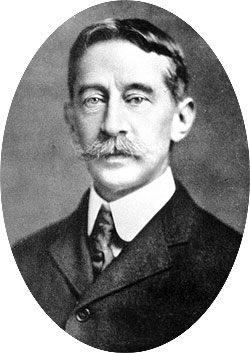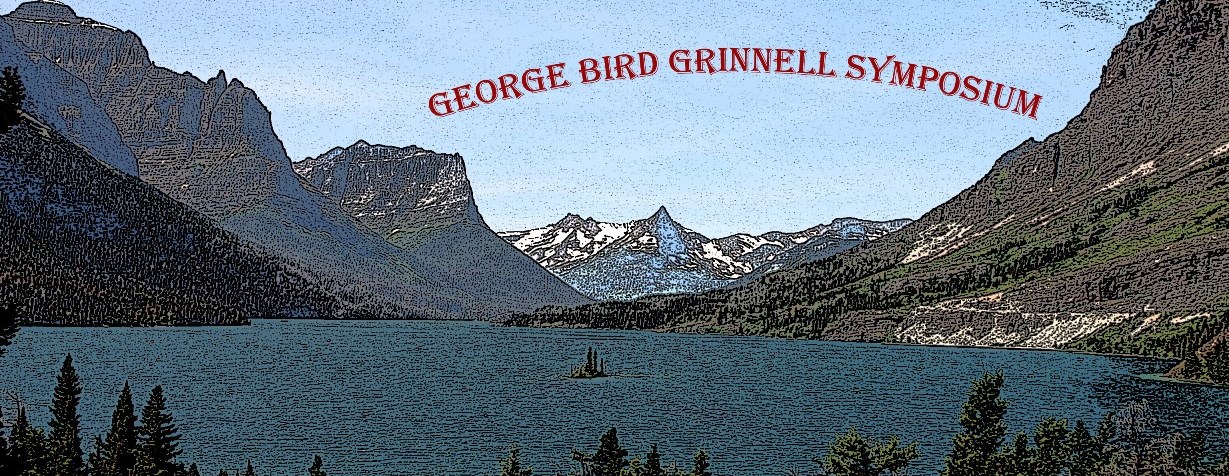George Bird Grinnell Symposium
This symposium is a gathering of academic scholars, each with expertise in some aspect of the life of George Bird Grinnell. The purpose of the symposium is to obtain the most objective and comprehensive analysis and biography of Grinnell to date.
The meeting will consist of a series of talks which are open to the public (registration required). A second major feature will be a workshop for teachers which will include teacher recertification credits.
Symposium results will be published as Proceedings of the George Bird Grinnell Symposium.
George Bird Grinnell Symposium Explained
Image of the Week
The symposium will take place at the Red Lion Colonial Inn in Helena, Montana from Thursday, July 1, 2014 through Tuesday, July 22, 2014.
Registration is now open. Please click the Register tab for details.
Featured speaker
Lorem ipsum dolor sit amet, consectetur adipisicing elit, sed do eiusmod tempor incididunt ut labore et dolore magna aliqua. Ut enim ad minim veniam, quis nostrud exercitation ullamco laboris nisi ut aliquip ex ea commodo consequat. Duis aute irure dolor in reprehenderit in voluptate velit esse cillum dolore eu fugiat nulla pariatur. Excepteur sint occaecat cupidatat non proident, sunt in culpa qui officia deserunt mollit anim id est laborum.
GBG Symposium blog articles.
Matthew,
Would be nice to have participants contribute articles. With this text widget and the ones to the right and left of this one we need to find out how many characters are allowed.
George Bird Grinnell (1849-1938) was a multifaceted person who was active in the late 19th and early 20th centuries, known for his work in paleontology, wildlife conservation, ethnology of Plains Indians, and as editor of Forest and Stream magazine. Grinnell was instrumental in the protection of wildlife in Yellowstone National Park and the creation of Glacier National Park. He created the first national Audubon movement, was cofounder with Teddy Roosevelt of the Boone and Crockett Club, and was a leading proponent of the concept of the true sportsman.
Grinnell was born in Brooklyn, NY on September 20, 1849 and remained a New Yorker throughout his life. In 1859 his family moved to Audubon Park where he became friends with the Audubon family, played with the Audubon children and went for three years to Lucy Audubon's one-room school. In 1870 he graduated from Yale University and earned his Ph.D. there in 1880.
Grinnell's first venture in the American West as on the 1870 Yale Student Expedition. Thereafter he made annual trips to the West in most years. He visited Grinnell Glacier, in Glacier National Park, for the last time in 1926.
Yet, Grinnell's life was even more rich and interesting than thus far described. Click on the "GBG Bio" tab for a more complete biographical sketch.
Teacher Workshop Introduction
A significant feature of the George Bird Grinnell Symposium is a Teacher's Workshop which will include recertification credits for teachers.
The workshop will be conducted by Byron K. Butler, M.S.T. (Master in Science for Teachers, U. of Montana) and Christopher W. Johnson, Ed. D. (U. of Minnesota).
The workshop will introduce George Bird Grinnell, outline his biography and explain his importance to the American West, especially to the history of Montana, wildlife conservation and Yellowstone and Glacier national parks. It will serve as a guide for teachers attending the symposium talks.
Incomplete . . . . .
Fun Fact of the Week
Although George Blake Grinnell had four sons, George Bird, Frank, Morton, and William, none of his eight grandchildren bore the Grinnell surname. Not sure how much fun that is, but it's a fact.
Grinnell in Montana
1875 Ludlow Expedition, Carroll Wagon Road, Preservation and Conservation in Yellowstone MP, Lacy Act of 1894 (National Park Protection Act of 1894), Grinnell and the Blackfeet, Establishment of Glacier National Park, etc., . . . . . .
Other text box
Other text box


